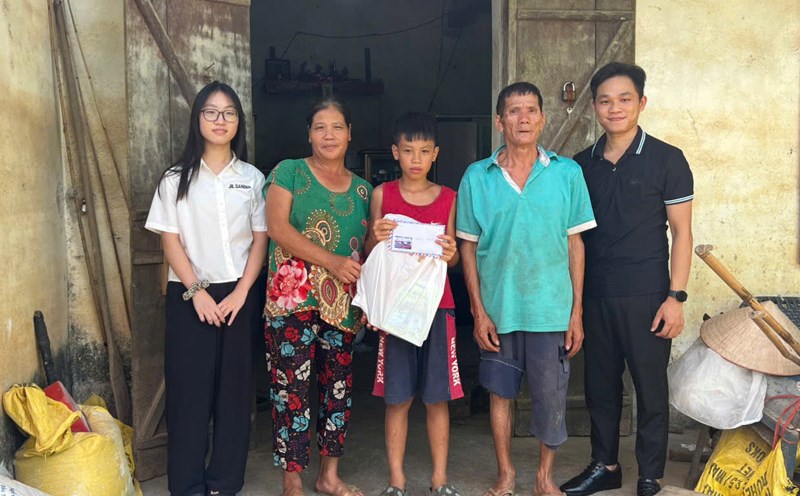When I was surprised, the tour guide explained: In Vietnam, most primary school students are picked up and drop off by their parents, but in Japan, they have to walk to school by themselves. In the land of the rising sun, you will see children wearing neat uniforms, wearing boy's ethnic hats alone or following a group of friends to school without an adult accompanying them, the youngest child is only about 6 or 7 years old.
In the eyes of Japanese parents, the above is completely normal. In fact, letting children walk to school on their own is a simple but very important first step for Japanese parents to teach children the skills of self-reliance for life.
Japanese education is very special. From a young age, children have been immersed in the collective concept of: Aiming for others and serving others. This concept allows them to turn to strangers safely, he said. Of course, to do this, Japan has had to do a lot of work, from establishing primary schools divided according to population density, ensuring that most students can walk to school within 15 to 20 minutes. Public space in Japan is planned very scientifically, controlling the flow and speed of vehicles. Warning signs are posted everywhere on Japanese roads to ensure children's safety. On the ground and on the phone post, there are signs for students to go to school so that everyone can pay attention to the safety of the children. The school also assigned the task of "protecting school children" to the teachers in charge. Every day when going to school, teachers are assigned to guide students to travel safely at some crowded intersections with complicated traffic outside the school.
I remember this because there is a debate in Vietnam about whether parents should send their children to school or not after many schools in Ho Chi Minh City decided to postpone school hours from the 2025-2026 school year. One of the purposes is to suit parents' working hours, making it convenient for parents to pick up and drop off their children.
The controversy is when some people say "Vietnamese parents waste time taking their children to school". Not only time, but also efficiency, work productivity is affected when having to take their children away - pick them up.
There are opposing opinions, because transportation in Vietnam is complicated, not to mention social issues, making the road from home to school unsafe.
This is an issue that Vietnamese educators need to study, because, looking at Japanese education, children going to school by themselves shows many benefits in forming personality, independence and sharing from them. At the same time, it also helps parents have time and effort to focus on work efficiency.
Vietnam is moving towards happy schools, so there should be solutions to have "safe and convenient roads to schools". Doing this also contributes to building the country in the future.










